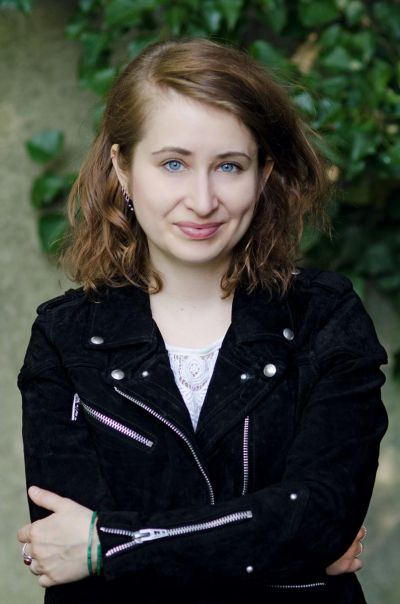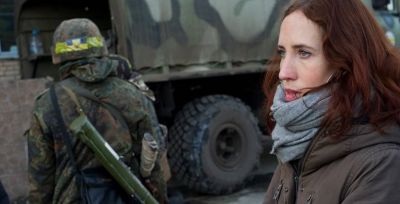Jurek Skrobala
On a Saturday in June 1988, when a Fiat 126 set off from Wrocław to drive through East Germany into West Germany, the fall of the wall still seemed like a fantasy. Jurek Skrobala was two and a half years old. His parents were nearly 30 and had carefully hidden their most important certificates and documents in the back section of a notebook that was tucked away in his mother’s handbag. This handbag was then thoroughly searched by the Polish border official, who even took all of the cigarettes out of the box. But he did not discover the documents. And that is how they moved to West Germany.
Years earlier, Jurek Skrobala’s father had visited relatives in Canada. Impressed by the possibilities of the “free West”, when he returned home real socialism seemed even more restrictive and even more arbitrary. During his time at university, he, like his wife, was already starting to increasingly sympathise with the “Solidarność” strike movement. At the same time, his desire to leave the People’s Republic was growing.
After crossing to the West, the Skrobalas initially found accommodation at the reception facility in Unna-Massen then moved on to Hagen. That is where Jurek Skrobala’s great-grandmother on his mother’s side lived, a Pole who, before the Second World War, had married a man in Łódź who was part of the German minority. After the war, his great-grandfather, who had been stationed in France as a soldier in the Wehrmacht, was not able to return to Łódź and so he settled in Westphalia, the home of his ancestors. His great-grandmother did not leave Łódź to join him until 1957, four years after the death of Stalin. The Skrobola’s backstory meant that they were considered “late repatriates” and were given German passports as well as their Polish ones.
At home, the family spoke Polish. Jurek Skrobala learnt German with his childminder and at kindergarten. But his mother had already taught him two important sentences: “I’m thirsty” and “I need a wee”.
In the Federal Republic, his father, who had worked as an English teacher and as a librarian in the Ossolinski National Library, tried his hand at being a vacuum cleaner salesman before working as a technical translator. And although his mother’s history degree was recognised in Germany, she still had to complete another degree in order to be admitted to the teaching profession. At the beginning to earn money, she worked in a bakery. Today she manages a physiotherapy practice.
Jurek Skrobala’s image of Poland was mainly influenced by the stories his parents had told him when he was young. He recounts: “They were often tragicomic anecdotes about Solidarność demonstrations, running away from the militia, or the challenge of getting hold of western alcohol.” But his family home was also full of music, like that of Jacek Kaczmarski, and poems, like those of Zbigniew Herbert. Jurek Skrobala associated this music and poetry with a feeling of home. This feeling and the interest in his own heritage led him to Münster to study modern and contemporary history majoring in Eastern Europe, as well as German language and literature and communications.
“As well as history, I was also interested in stories”, he said. “But I liked music best.” Jurek Skrobala played guitar in an experimental post-punk band. which managed get a record deal with one of the biggest music publishers but broke up during the months it took to record their début album. The rise and fall of the band provided the backdrop to almost all his time at university. But at the same time, Jurek Skrobala had secured various work experience placements, for example at “Jetzt”, the format of the Süddeutsche Zeitung aimed at a younger audience. He also wrote for the online pop music fanzine “Rote Raupe” and was paid in CDs and concert tickets. He says: “I increasingly began to notice that I was also enjoying writing about music”. So when the band split up at the end of his degree, Jurek Skrobala turned his plan B into his plan A and applied for a place at the German School of Journalism. He was accepted and became one of 15 in the compact class of the 52nd editorial training group. His time at the “Raupe” had convinced him that he wanted to work in features. When an internship became vacant in culture at “Der Spiegel”, he applied for it. He ended up working for both the magazine and for the online editorial team at the “Spiegel”. Skrobala eventually moved to “Neon”, mainly to teach himself how to write long articles on topics relating to pop and youth culture. During his time at the magazine, which has since been discontinued, he also wrote essays relating to Poland, such as his reportage on the shift to the right in Poland. Today he mostly works as a permanent freelance writer for the “Spiegel”.
Skrobala mainly writes about the thing that he has always liked to write about: music. His preferred formats are reportages and portraits. For example, he wrote about the US rap star Kendrick Lamar whom he met in Paris, about the Lithuanian conductor Mirga Gražinytė-Tyla, whom he was able to accompany in London and Birmingham, and the pianist Igor Levit, whom he was able to shadow in Germany, England and France. In 2018, his report on the scandal about the German rapper Kollegah put Jurek Skrobala on the shortlist for the German Reporter Prize.
As well as music and pop culture, from time to time Skrobala also likes to turn his hand to other social issues. For example, he wrote about a survivor of the massacre on the Norwegian island of Utøya, a North Korean refugee in Seoul and an observation about doing nothing.
Time and again, Jurek Skrobala addresses the subject of Poland. But not because he is of Polish heritage and wants to play his journalistic “Poland bonus”, as a German editor once put it somewhat disparagingly. He says: “I like to look at issues that revolve around Poland if I consider them to be relevant and if they interest me. Like with topics related to pop culture.”
In 2014, Skrobala took a trip through the country of his birth and interviewed various authors. They included Olga Tokarczuk in Wrocław, Szczepan Twardoch in Silesia and Andrzej Stasiuk near the Slovakian border. One issue that came up in the conversations was the one following Putin’advance in Donetsk mirrored in Poland's history. In 2019, Skrobala travelled to Warsaw for the “Zeit” to track down the myth of Polish vodka. Skrobala considered it a particular honour to be able to work on “Die letzten Zeugen” [The last witnesses], a cover story in the “Spiegel” about survivors of the Auschwitz concentration camp. To do this, he met with Zofia Posmysz and Kazimierz Albin in Warsaw for some longer interviews. The project also produced a book published by Susanne Beyer and Martin Doerry.
Today, Jurek Skrobala can still hold a conversation in fluent Polish. But sometimes he has to search for the right word and will occasionally fall back on the German expression, like when he is on the phone to his mother. Years ago during an internship at the “Deutsche Welle” in Bonn, a Polish editor said jokingly that he speaks Polish like Mickiewicz, a Polish poet from the 19th century. “That was rubbish of course”, says Skrobala, “but it was also funny because it’s true that the Polish that I learnt from my parents in the late 80s has gathered a bit of dust.”
Even today, Skrobala’s view of Poland is still influenced by the descriptions and the ideals of his parents who had taken to the streets for the Solidarność movement. He is critical of the national conservative politics of the PiS. In his view, they are at odds with the openness that many Poles have towards the world, they undermine democracy and set the country back. “It is a cause of concern for me”, he says. “The attempted censorship, the abortion law, the so-called LGBT-free zones, none of that fits in with the world view of young people in particular. In my opinion, none of that should have a place anywhere.”
On the question of whether Jurek Skrobala’s home is in Germany or in Poland, when he was 29, he wrote an article for “Neon” which he still stands by to this day. It said:
“When I was twelve, I wrote an article called “homeland”. It starts with a small Fiat, dogs barking and the smell of coal. They are the things that immediately remind me of Poland. When I was twelve, I thought that that must be home: these nostalgic details. But that’s not the case. Home is not a place. It is not in any passport; it is not made up of memories beautifully recalled. Home is a feeling. Feeling safe and secure – perhaps that’s home? That’s how I feel in Hamburg, where I live, in Wrocław, where my grandmas live, and in my parents’ apartment in shrunken Poland. Home – the word should be used in the plural more often.”
Anselm Neft, Februar 2021
The homepage of the journalist Jurek Skrobala: www.skrobala.de


